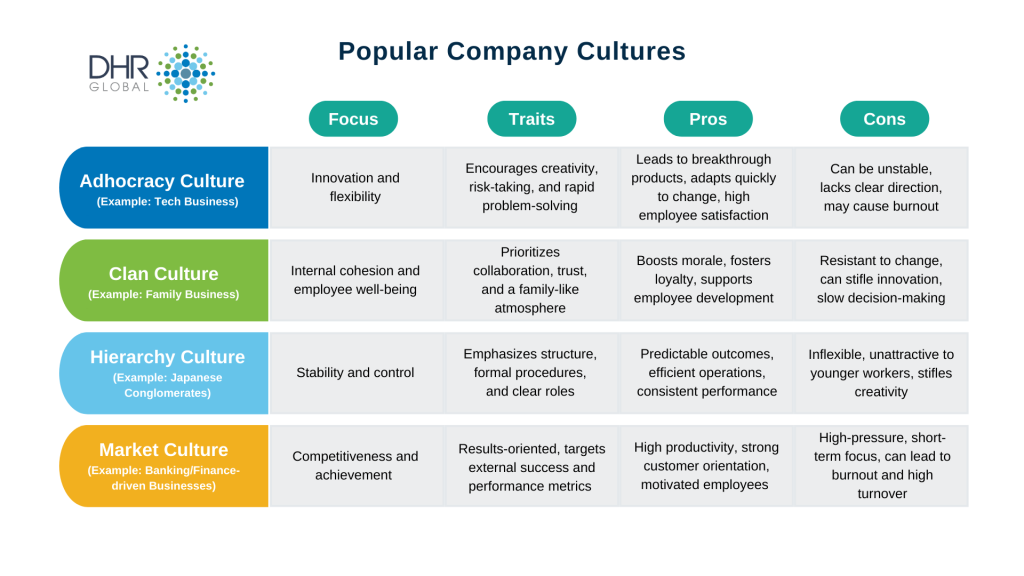A Q&A with Pierre-Jean Françon
As we navigate the challenges of the modern global economy, the importance of a company’s culture and values cannot be overstated. These elements are the bedrock upon which successful organizations are built, influencing everything from employee satisfaction to overall productivity.
Culture is the collective atmosphere that shapes how employees interact, make decisions, and approach their work. On the other hand, values are the guiding principles that dictate a company’s actions and behaviors. Understanding and nurturing a strong company culture, aligned with clear values, is essential for attracting top talent, fostering engagement, and driving long-term success.
We asked Pierre-Jean Françon, Managing Partner, Leadership Consulting, to share why organizational culture and values matter and how they can be best cultivated.

Meet Pierre-Jean Françon:
Pierre-Jean is the Managing Partner at DHR Global’s Singapore office, specializing in executive search and leadership consulting across various industries. With a deep understanding of the retail and consumer sectors, he advises global corporations and local conglomerates in Asia, focusing on senior-level roles.
Before joining DHR Global, Pierre-Jean was Vice President at an executive search firm in Tokyo and Hong Kong and a consultant in Japan, gaining valuable insights into the Asian market. He holds certifications in coaching and assessment tools and continually invests in his professional development.
What are company values and why are they so important?
Values are a huge factor in a business’s success or failure. As a leadership consultant, I hear about executives moving from one company to another to do essentially the same role but then complaining that they can’t perform well in the new environment. Most of the time, it’s because they did not take the company culture and values into account. So, even though the job looks the same on paper, it turns out to be something very different.
Company values are the core principles and beliefs that guide the organization’s decisions, actions, and interactions, both internally and externally. They represent what the company stands for. They often include statements about ethics, integrity, customer service, innovation, diversity, and respect. They are usually documented and communicated explicitly by the organization, including being reflected in the company’s mission statement, code of conduct, and the strategic goals it pursues.
Values tend to be stable and consistent over time, providing a foundation for the company’s identity and long-term vision. These values guide how the company expects its employees to behave and how it conducts its business. High-performing groups will often share similar values. For example, look at All Blacks and the United States Marine Corps.
What is the difference between company culture and company values?
Company culture encompasses the collective behaviors, attitudes, beliefs, and norms that define how people within an organization interact and work. Often described as “how things are done around here,” it includes communication styles, decision-making processes, leadership styles, work environment, employee engagement, and overall atmosphere. Culture is experienced through everyday actions, rituals, traditions, and unwritten rules, and it can evolve over time with organizational growth, new challenges, or leadership changes.
A collaborative culture promotes open communication, teamwork, and idea exchange, while a competitive culture focuses on individual performance, goal attainment, and rewards for top achievers. Ideally, company culture should align with its values, such as encouraging creative thinking and risk-taking if “innovation” is valued.
Values shape and influence culture by setting behavioral expectations, but the actual culture emerges from how these values are practiced daily. A gap between stated values and actual culture can lead to employee disengagement or distrust if the company doesn’t “walk the talk.”
In summary, company values are the guiding principles, while company culture is the lived experience of how those values and other influences manifest in daily interactions and practices.
Who sets the company culture?
The people at the top of the organization and founders play the most critical role in setting the tone for company culture. They establish the initial vision, values, and behaviors that they expect within the organization. For example, a founder who values innovation and takes risks may create a culture that encourages experimentation and creativity throughout the company.
What are the different types of company culture?
Here are the most popular company cultures existing today:

How do you assess if a leader’s values align with the company’s?
Conducting a leadership or psychometric assessment can be valuable in determining if a leader’s values align with those of the company they’re applying to. People tend to thrive and remain longer in environments where shared values exist, indirectly boosting their chances of success within the organization. However, it’s important to note that while value alignment can contribute to retention, it doesn’t always guarantee success.
How can company leaders understand their organization’s culture to set the team up for success?
A corporate culture assessment is conducted to understand the underlying values, beliefs, behaviors, and practices that define an organization’s environment. This assessment can help in several key areas:
- Alignment with Strategy: Ensure that the company’s culture supports its strategic goals and objectives, creating a cohesive environment that drives success.
- Improving Employee Engagement: By understanding the existing culture, organizations can identify areas where employees feel connected or disconnected, leading to targeted initiatives that boost engagement, satisfaction, and retention.
- Enhancing Recruitment and Onboarding: Understanding the company culture helps attract candidates who are more likely to fit and thrive within the organization, reducing turnover and improving overall team cohesion.
- Identifying Areas for Improvement: A culture assessment can reveal misalignments or toxic elements within the organization, providing a basis for interventions that improve workplace dynamics and overall performance.
- Supporting Change Management: When an organization undergoes significant changes, such as mergers, acquisitions, or leadership transitions, a culture assessment helps manage the impact on employees and guides the integration process.
- Fostering Innovation and Growth: By assessing the culture, companies can identify whether it encourages innovation, creativity, and adaptability, which are essential for long-term growth and competitiveness.
In essence, a corporate culture assessment provides a clear picture of the current environment and offers actionable insights to create a more positive, productive, and aligned workplace.
Do you typically see that an organization’s culture is consistent throughout different departments and levels?
As time goes by, we see that values and culture tend to get stable inside an organization. That being said, in large corporations, culture could vary in different geographies/markets given the local culture and context. For instance, you might see this in a Japan subsidiary versus its US headquarters. We also see that as you go down the organizational chart, the values tend to dilute. For example, looking at a retail organization, if you would ask the CEO, “What are the values of the company you’re running?” he might give you a very different answer than the sales clerk inside the store. Simply put, they experience the company in a very different way. This is why, at every level, starting from the top of the pyramid, there is a need to reinforce the culture downstream to make it consistent.
Creating a Thriving Workplace
In today’s dynamic global economy, the role of a company’s culture and values is more critical than ever. These elements form the backbone of successful organizations, influencing everything from employee morale to overall efficiency.
Company culture dictates how employees interact, make decisions, and perform their duties, while values provide the ethical framework guiding these actions. By fostering a strong culture that aligns with clear, well-defined values, companies can attract and retain top talent, enhance employee engagement, and achieve sustainable success.
In essence, a harmonious alignment between culture and values drives organizational performance and ensures that the company remains true to its principles, creating a trustworthy and inspiring workplace.
Design an Organization That Delivers Results
DHR Leadership Consulting advises clients on their most important leadership and talent management challenges. Selecting and developing the right talent helps organizations, of all shapes and sizes, achieve maximum impact and economic value.
Whether your need is identifying future board candidates, planning future leadership transitions, or redesigning the organization structure, our team of experienced professionals partner with you to develop and execute pragmatic solutions.
